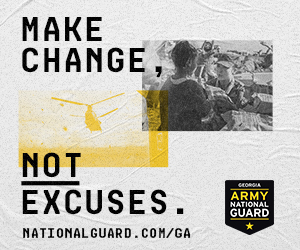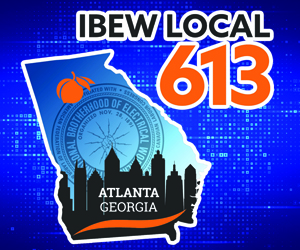Courtesy of the AJC/Mark Bradley
He wasn’t the classic radio voice. On purely technical terms, he wasn’t the paragon of play-by-play, either. But such was the power of the mighty Munson personality that none of that mattered. You didn’t care if his calls were vague or his growl sounded like a Waring blender being jammed down a garbage disposal. You cared only that the man behind the microphone agonized as much over this particular football game as you did.
This isn’t to suggest Larry Munson wasn’t a pro. He was. But he was the amateur’s pro. There was no distance in him. He’d beseech the Georgia defense to hunker down – “One … more … time” — and he’d fret that a perfectly winnable game was unwinnable simply because that’s way of all fretters, and when the unwinnable game somehow got won the growl would raise hosannas as sweet as any bit of church music.
The idea of radio play-to-play was, in those long-ago days before every game found some television outlet, to paint a picture and to tell a story. Munson painted like Van Gogh on a starry night and conjured up better stories than Jack London. When the Georgia Tech broadcaster Al Ciraldo died a few years ago, Munson lamented his passing by saying, “We’re the last of a breed.”
In Munson’s day, the radio man was the fans’ only constant conduit to a team. On any given autumn Saturday nowadays we can watch a dozen games, but we couldn’t back then. The Rex Robinson game in Lexington in 1978? Wasn’t on live TV. The Herschel debut in Knoxville two years later? Wasn’t on live TV. The sugar-falling-from-the-sky game in Auburn two years after that? Wasn’t on live TV.
Any broadcaster could give you the down and distance; only Munson could give you the agony and the ecstasy. From property being destroyed on St. Simons after Belue-to-Scott to the Volunteer noses broken by the hobnailed boot, the Munson sense of imagery was a gale force unto itself. Nobody else sounded like him. Nobody else would choose the words he chose. The first time I heard Munson doing a Georgia game, I thought I had, by a trick of the ionosphere, tuned into some ham radioman having a nervous breakdown. The more I listened to him, the more I realized my first impression wasn’t far wrong, and I mean that in the best possible way.
There were no mail-in Saturdays for Munson. Every week was another passion play. Didn’t matter if the Bulldogs were playing the worst team in creation — Munson would worry to the extent that his listeners started breaking out in flop sweat because, halfway through the first quarter, Podunk State was “acting as if she wants to score.”
True fact: Vince Dooley, himself a worrier of renown, would try to avoid Munson during the week because, Dooley said, “he makes me nervous.” When Dooley would go overboard extolling some overmatched opponent’s virtues, we’d all wink. When Munson started growling on (and on) about the speed of Podunk … well, the winking would cease and the nerve-jangling would commence. You’d suspend disbelief simply because of the force of one voice.
I’m proud to say I knew the man, and I must tell you this: There was no artifice in the Munson persona. What you heard on-air was the Larry Munson. I’ll never forget that cold day in Auburn back in 2002, when 10-1 Georgia, ranked No. 7 in the land, was trying to win the SEC East for the first time. Before kickoff, I asked Munson what he thought. He looked at me as if I was crazy for even asking. “We haven’t got a chance in hell,” he said.
History will record that Georgia won on the fourth-down pass — 70-X-Takeoff, the play was called — from David Greene to Michael Johnson, and again the Bulldogs had overridden the odds and the fates and the primordial Munson doubts to prevail. And that was why Munson held us in such thrall: Georgia wouldn’t win because it had twice the talent of its opponent but because good had, miracle of miracles, trumped evil.
To listen to Cawood Ledford, the greatest pure play-by-play man who ever lived, call a Kentucky basketball game was to hear talent and craftsmanship. To hear Munson at work was to be bombarded by the sheer depth of feeling for what he was witnessing. When the famous Memphis record man Sam Phillips first heard the blues singer Howlin’ Wolf on the radio, Phillips is said to have said: “This is where the soul of man never dies.”
To hear Larry Munson call Georgia football was to experience something similar. (And surely it was no coincidence that Munson was, in an earlier manifestation, a professional piano player. He had the ears to go with the voice.) The great man passed away Sunday night at age 89; the great growl will live forever.









































































